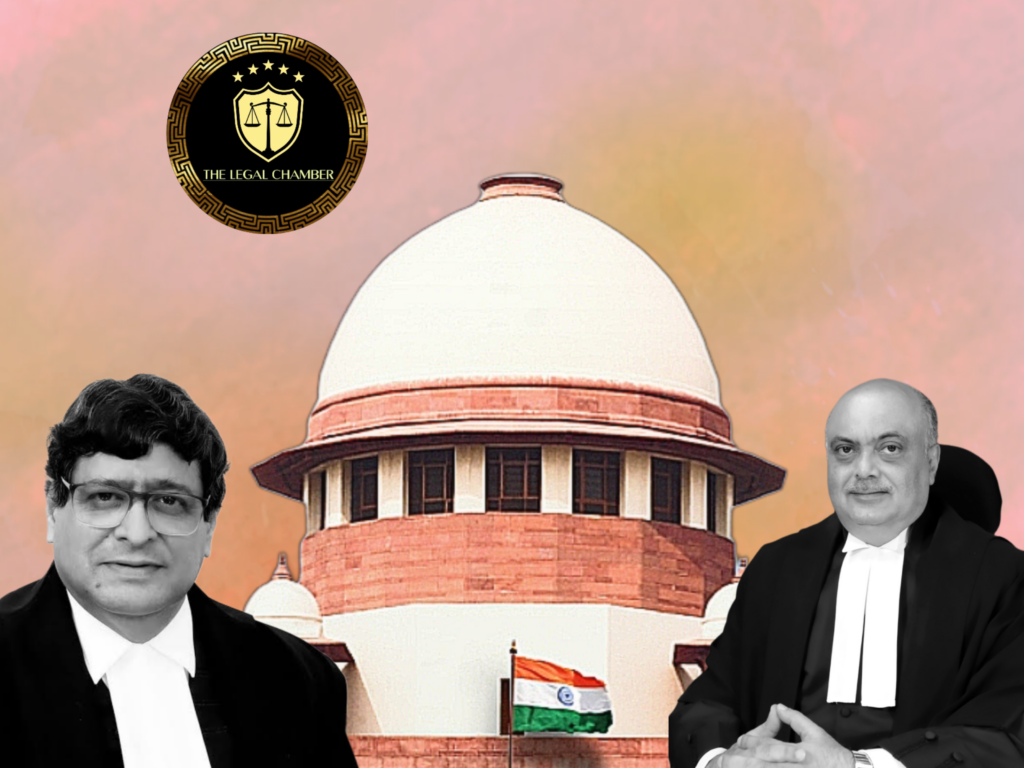
The Supreme Court ruled that when a tractor (insured) causes an accident involving an attached trailer (uninsured), the insurer is liable for third-party compensation under the Motor Vehicles Act, 1988. The Court held that the trailer, being part of the tractor’s operation, need not be separately insured, emphasizing the Act’s welfare-centric interpretation. The insurer’s liability was capped at the policy limit, with recovery rights against the vehicle owner for excess amounts. The judgment harmonized precedents on composite vehicle insurance and statutory compensation.
Facts Of The Case:
On February 29, 2012, Nagarajappa (deceased) was working as a coolie on a tractor-trailer transporting soil when the vehicle overturned due to the driver’s negligence, resulting in his fatal injuries. His widow and two minor daughters (Respondents 1–3) filed a claim petition before the Motor Accident Claims Tribunal (MACT), Harihar, seeking ₹10 lakh compensation. The MACT awarded ₹9.5 lakh in 2014 but held the tractor’s insurer (Royal Sundaram Alliance, Appellant) not liable, citing exclusion of trailer and employee risks under Section 147(1)(b) of the Motor Vehicles Act, 1988, and fastened liability on the vehicle owner (Respondent 4) and driver.
The claimants appealed to the Karnataka High Court, which enhanced compensation to ₹13.28 lakh in 2022 and reversed the MACT’s finding, holding the insurer liable. The insurer challenged this before the Supreme Court, arguing: (1) the trailer was uninsured and explicitly excluded in the policy; (2) the compensation exceeded the claimed amount; and (3) the deceased was an employee, not a third party. The Supreme Court upheld the High Court’s decision, ruling that the tractor’s insurance covered the composite vehicle (tractor-trailer) accident, as the tractor’s movement caused the mishap, and directed the insurer to pay ₹9.5 lakh (policy limit) with recovery rights against the owner for the balance.
Procedural History:
The case originated with an accident claim filed by the deceased’s family before the Motor Accident Claims Tribunal (MACT), Harihar in 2012 (MVC No. 121/2012). The MACT’s 2014 award granted ₹9.5 lakh compensation but absolved the insurer, holding only the vehicle owner and driver liable. Dissatisfied, the claimants appealed to the Karnataka High Court (MFA No. 3659/2014), which in November 2022 enhanced compensation to ₹13.28 lakh and reversed the insurer’s exoneration. The insurer then approached the Supreme Court through SLP (Civil) No. 2135/2023, converted to Civil Appeal. During Supreme Court proceedings, the appeal against the driver was dismissed in February 2024. After examining policy terms and precedents, the Supreme Court delivered its final judgment on May 5, 2025, upholding the High Court’s decision on insurer liability but capping their payout at ₹9.5 lakh with recovery rights against the owner for the balance. The Court dismissed the insurer’s appeal while permitting recovery of excess amounts from the vehicle owner.
Court Observation:
The Supreme Court made several critical observations in its judgment. Primarily, it emphasized that the Motor Vehicles Act, 1988 is a beneficial welfare legislation meant to protect victims of road accidents, and must be interpreted liberally to serve this purpose. The Court noted that when a tractor (insured) is attached to a trailer (uninsured), the combination functions as a single unit, and thus the tractor’s insurance coverage extends to the trailer during such composite operation. It observed that the accident’s root cause was the tractor’s movement, making the insurer liable regardless of the trailer’s separate insurance status.
The Bench distinguished this case from Dhondubai’s precedent by highlighting that here the tractor’s active involvement caused the accident, unlike situations where only the trailer was involved. The Court also clarified that while insurer liability is limited to policy terms or statutory requirements (whichever is higher), this doesn’t absolve them when the insured vehicle is the accident’s proximate cause. Importantly, it noted that technical policy exclusions cannot override the MV Act’s social justice objective, though insurers may recover excess amounts from negligent vehicle owners. The judgment reiterated that compensation claims must balance contractual insurance limitations with the Act’s protective intent.
Final Decision & Judgement:
The Supreme Court dismissed the insurance company’s appeal while upholding the Karnataka High Court’s enhanced compensation of ₹13.28 lakh to the victim’s family. The Court ruled that Royal Sundaram Alliance Insurance (Appellant) is primarily liable for the accident since the insured tractor caused the trailer overturn, establishing composite liability. However, capping the insurer’s obligation at ₹9.5 lakh (policy limit), it granted recovery rights to reclaim any excess amount paid beyond this sum from the vehicle owner (Respondent 4). The judgment clarified that: (1) tractor insurance covers attached trailers during operation; (2) the Motor Vehicles Act’s social justice purpose overrides technical policy exclusions for third-party claims; and (3) insurers must first discharge statutory liability before pursuing recovery from negligent parties. The Court ordered payment within two months while confirming 6% interest from the claim petition’s filing date. The decision balanced contractual insurance limitations with victim protection, reinforcing that welfare legislation cannot be defeated by narrow policy interpretations.
Case Details:
Case Title: The Royal Sundaram Alliance Insurance Company Limited v. Smt. Honnamma & Ors. Citation: 2025 INSC 625 (Reportable) Appeal No.: Special Leave Petition (Civil) No. 2135 of 2023) Date of Judgment: May 5, 2025 Judges/Justice Name: Hon'ble Mr. Justice Sudhanshu Dhulia & Justice Ahsanuddin Amanullah
Download The Judgement Here